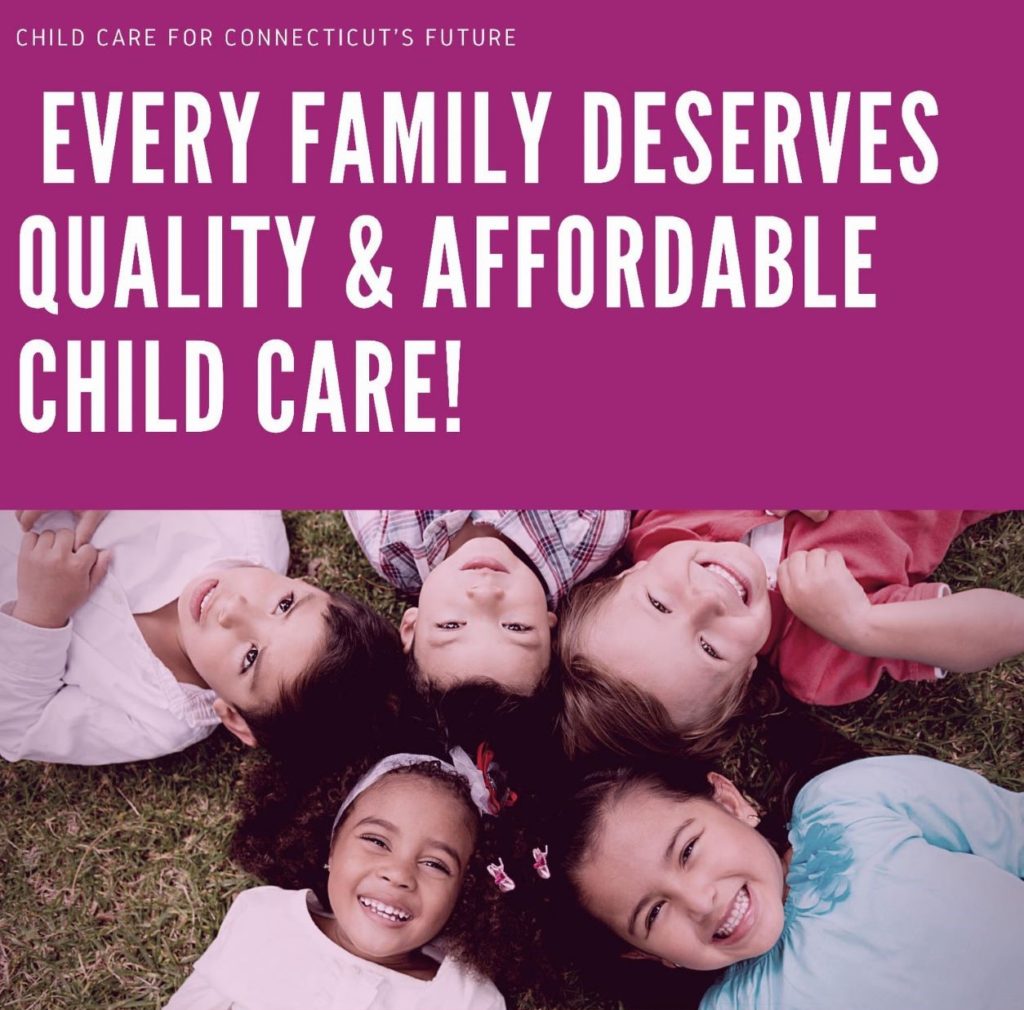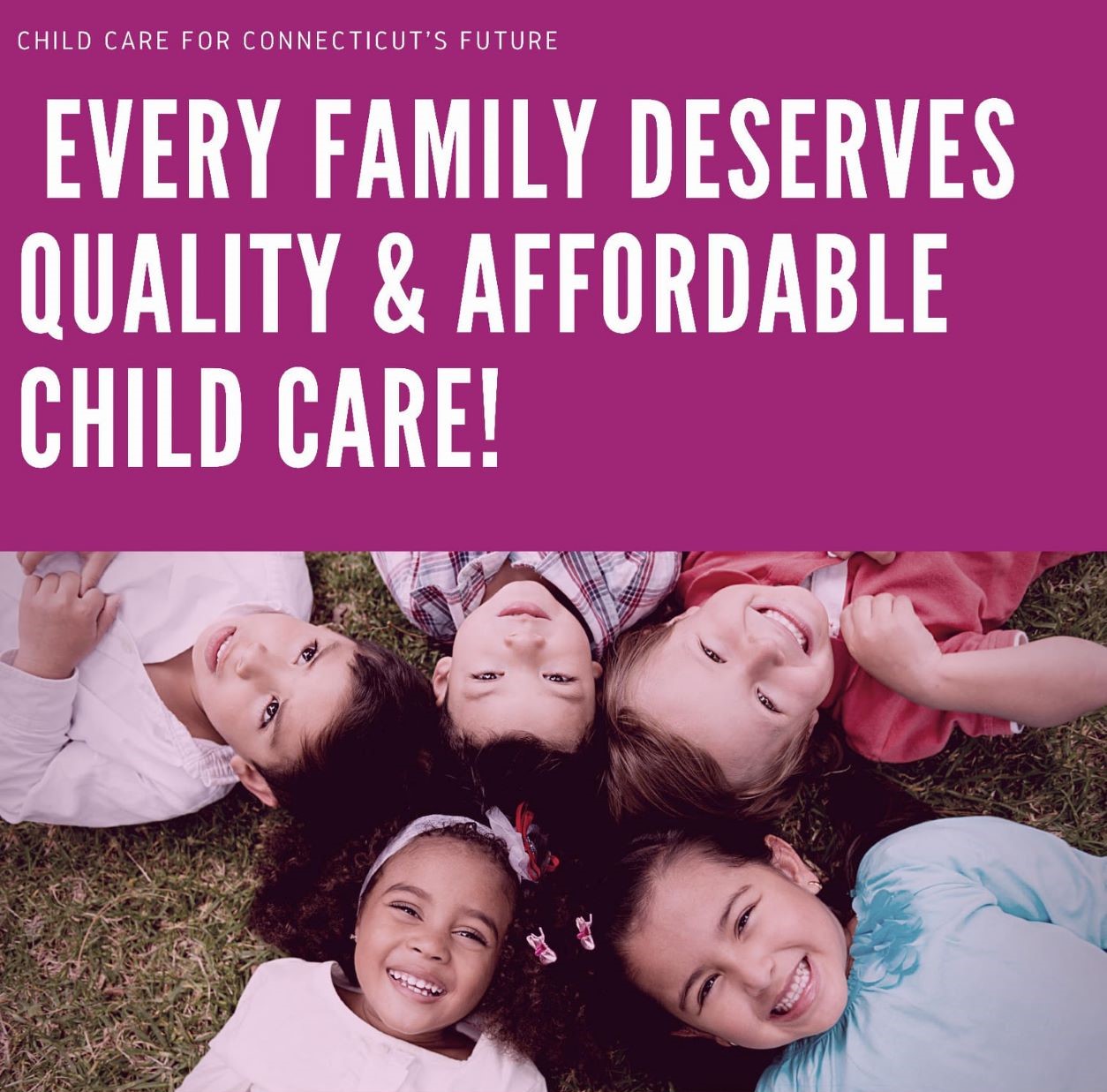40% of CT Families Live In “Child Care Deserts”; Shortage Is Severe in New Britain
By John McNamara
New Britain is one of the communities in affluent Connecticut with significant “child care deserts” — places where a high percentage of working and middle income families do not have access to quality and affordable services for young children.
Board of Education President Merrill Gay confirms that infant and toddler child care shortages are severe in the city.
“We have licensed spots for only 8 out of every 100 children under 3 in New Britain,” he said.
Statewide Data compiled by a Trinity College student for child care advocates shows a deficit of 2,786 for children three and under in New Britain. Neighboring West Hartford, a town of comparable size, comes up 1,234 short..
Gay, the Executive Director of the CT Early Childhood Alliance, is one of the organizers of a new initiative “to transform child care in CT” called Child Care For Connecticut’s Future. On November 4th. a coalition of advocates, business leaders, parents, child care providers and labor representatives came together via Zoom “to build sustained public support for high-quality, affordable child care”
Eva Bermudez Zimmerman, Co-Chair of the campaign and Director of the Service Employees International Union’s (SEIU) CSEA Local 2001’s Childcare and Organizing, introduced the November 4th launch saying the question for improving child care services has always been where is the money to pay for quality early childhood education for working parents going to come from.

Zimmerman and other members of the coalition have been buoyed by the infusion of federal pandemic relief money that has gone to maintain child care centers during the prolonged public health emergency, New federal aid, for example, has expanded Care4Kids, the subsidy program. And on the horizon may be President Biden’s Build Back Better legislation that contains the kind of investment in child care coalition leaders say is needed. to alleviate a crisis fueled by the high cost of quality care, the low capacity of the current child care network and low pay for child care providers with the credentials to deliver quality services. At the top of the list in the “human infrastructure” bill is “providing universal, high-quality, free preschool for every 3- and 4-year old in America.” That would parallel the creation of the federal Head Start program for four year olds that has survived federal budget ups and downs since President Johnson’s “Great Society” in the mid-1960s. “The time is now to build sustained public support for high quality, affordable child care for kids of all ages! The Child Care For Connecticut’s Future Campaign combines the voices of parents, providers, and advocates to make changes in our state’s policy, and make sure money coming our way isn’t a band aid,” says the coalition.
According to Gay “we had almost 400 people on a virtual launch of the campaign. There were really powerful stories from parents and child care providers.”
Child Care For Connecticut’s Future Campaign Launch Video
Advocates, including Office of Early Childhood Commissioner Beth Bye, got some high-powered help for the launch of the campaign. Joining the virtual kick off were U.S. Rep. Rosa DeLauro (CT-03), the Chair of the House Appropriations Committee; Indra Nooyi, former President and CEO of Pepsico and Chair of Gov. Lamont’s COVID-19 Re-Opening Committee; Skip Kodak, Executive Vice President of Enfield-based The LEGO Group of America and Dr. Walter Gilliam, Director of the Edward Zigler Center In Child Development and Social Policy at Yale School of Medicine.
“Obviously the reason that the child care deficit is so high in New Britain is that we are a poor city where parents can’t afford the market rate for child care,” says Gay. “Infant toddler care in a center in our region is very expensive with some programs charging as much as $600 per week. Care4kids pays $305 a week which means you can’t afford some of the more expensive places like Educational Playcare or Bright Horizons.” A longtime organizer for early care and family services in the city, Gay says Preschool is still not universal but “we’re in better shape” with about 80% of New Britain’s kids going to at least a year of pre-k before the pandemic. “Covid scrambled everything.”
For Gay and the child care coalition improving a “crisis” situation in New Britain and other towns depends on meeting several bottom lines including delivering child care “to every family who needs it”, empowering parents to choose where and who cares for their child and ensuring the providers are properly compensated as early educators. All of these bottom lines will depend on passage of Build Back Better before the end of the year.




